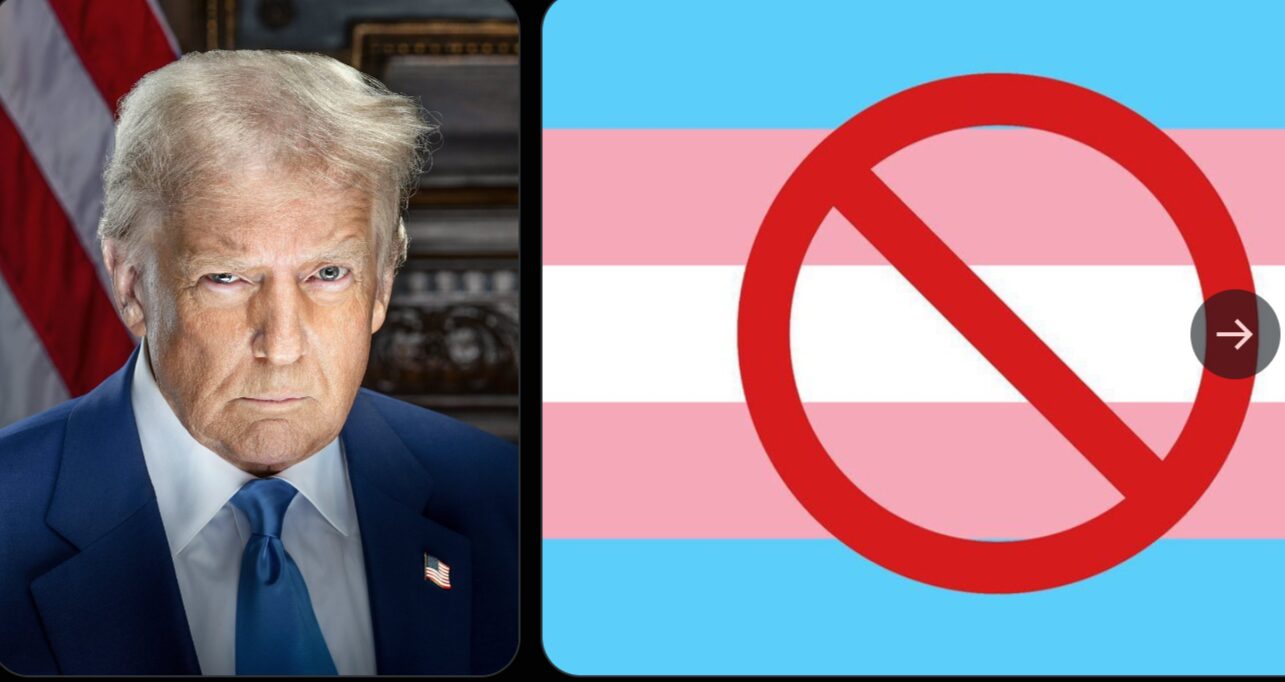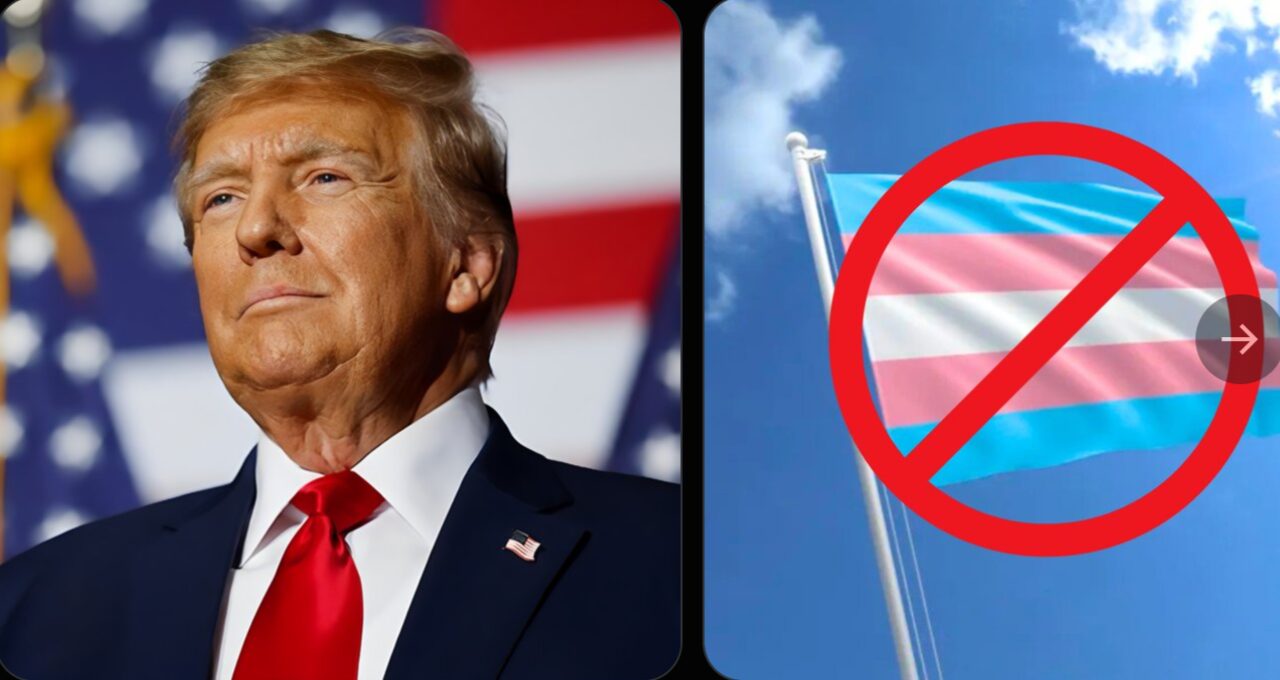President Trump officially declares that the US government recognizes only two genders: male and female
In a move that has reignited debates on gender identity and civil rights in the United States, former President Donald Trump has officially declared that the US government will recognize only two genders: male and female. This declaration, which reflects Trump’s longstanding conservative views on gender and family issues, has garnered significant attention and controversy across the nation. The announcement is expected to have far-reaching implications on policies related to gender identity, healthcare, education, and civil rights for individuals who do not conform to traditional binary gender norms.
For many, this statement represents a reaffirmation of Trump’s ideological stance and commitment to what he refers to as “traditional American values.” However, for others, it represents a step backward in the ongoing struggle for the rights and recognition of transgender and non-binary individuals. As the debate surrounding gender identity continues to evolve in the US and around the world, Trump’s declaration has brought the issue back into the spotlight, fueling both support and opposition in equal measure.
The Declaration’s Key Message
President Trump’s declaration asserts that the US government, under his leadership, will officially recognize only two genders: male and female. This definition is based on biological sex, with male and female categorized as distinct, immutable genders determined by physical characteristics such as chromosomes and reproductive anatomy. According to the statement, gender identity and expression outside of this binary classification will not be acknowledged or legally recognized by the federal government.
The announcement seeks to override current policies that have been more inclusive of transgender, non-binary, and gender-fluid individuals. For instance, under the Biden administration, policies such as the inclusion of transgender people in the military, protections for transgender students, and expanded rights for gender-nonconforming individuals were put in place. Trump’s reversal intends to revoke or replace these policies, citing concerns over fairness, public health, and societal norms as reasons for restricting gender recognition to the male-female binary.
The Political and Social Context
This declaration is part of a broader ideological conflict that has played out across the political spectrum in recent years. Gender identity and rights have become central issues in the culture wars, with conservative groups arguing for the preservation of traditional family structures and values, while progressive groups advocate for the rights and recognition of people who identify outside the male-female binary.
Trump’s statement is clearly aligned with conservative views on gender. Many Republican leaders and conservative activists support the notion that gender should be defined strictly by biological sex and have opposed any attempt to expand legal recognition for non-binary or transgender individuals. These groups argue that gender fluidity undermines societal cohesion, complicates issues like sports participation and public restrooms, and challenges long-held cultural norms.
On the other hand, progressive groups, LGBTQ+ rights activists, and healthcare professionals have long argued that gender is not a fixed biological attribute but rather a complex and personal spectrum that includes many identities beyond just male and female. They believe that recognizing and respecting gender diversity is essential to ensuring equal rights and opportunities for all individuals, regardless of how they identify. Trump’s declaration is seen as a direct challenge to these beliefs, and it has sparked strong reactions from these groups.
The Impact on Policy and Law
The official stance on gender recognition has significant implications for various areas of US policy and law. One of the most immediate effects could be on healthcare. Under the Obama administration, the Affordable Care Act (ACA) was amended to include protections against discrimination based on gender identity in healthcare settings. This ruling allowed transgender individuals to access gender-affirming care and to seek treatment without fear of discrimination. With Trump’s new declaration, it is likely that these protections will be rolled back, potentially making it harder for transgender individuals to access necessary medical services, such as hormone therapy, gender confirmation surgeries, and mental health care.
Another area where the declaration will likely have an impact is education. Under previous administrations, schools and universities were encouraged to recognize and accommodate transgender students, allowing them to use restrooms, locker rooms, and participate in sports that align with their gender identity. Trump’s policy shift could mean the reversal of protections for transgender students, leading to possible legal challenges over issues like bathroom access and sports participation for gender-nonconforming students.
Moreover, federal anti-discrimination laws such as Title IX, which prohibits sex-based discrimination in education, could see a reinterpretation to exclude protections based on gender identity. This could lead to further legal battles over what constitutes discrimination and whether schools, workplaces, and other institutions can deny services or benefits to individuals based on their gender identity.
Reactions from the LGBTQ+ Community and Allies
The LGBTQ+ community has reacted strongly to Trump’s declaration, viewing it as a regressive step that undermines the progress made over the past few decades in terms of equal rights for transgender and non-binary individuals. Advocates for LGBTQ+ rights have condemned the policy change, arguing that it is discriminatory and harmful to an already vulnerable population.
Many activists have pointed out that this declaration ignores the lived experiences of individuals who identify as transgender or non-binary. By strictly defining gender as male and female, it erases the existence of people whose identities do not fit within these narrow confines. Transgender people, who often face high rates of discrimination, violence, and mental health challenges, could be further marginalized by policies that fail to recognize their gender identity.
In addition to the LGBTQ+ community, many medical professionals and scientists have also expressed concerns. The medical community generally recognizes gender as a spectrum that encompasses a range of identities, and there is mounting evidence that affirming one’s gender identity is crucial to mental health and overall well-being. Healthcare professionals warn that Trump’s policy could have detrimental effects on the mental and physical health of transgender and non-binary individuals by denying them recognition and access to necessary care.
Support from Conservative Groups
On the other side of the debate, Trump’s declaration has been hailed as a victory by many conservative groups who view it as a return to traditional values. These groups argue that the male-female gender binary has been a cornerstone of Western civilization and should not be compromised. They contend that recognizing multiple genders is a societal shift that could lead to confusion, unfair competition in sports, and unnecessary social tensions.
For conservative religious organizations, the declaration aligns with their belief that gender is divinely determined and unchangeable. These groups often emphasize the importance of biological sex in understanding gender roles and have criticized the expansion of gender identity recognition in schools, workplaces, and public policy.
Trump’s stance on gender has also received support from right-wing politicians, who argue that his position represents common sense and reflects the values of the majority of Americans. They believe that public policy should protect the traditional family unit and ensure fairness in issues such as athletics, where questions about the inclusion of transgender athletes have generated heated debate.
Legal and Political Challenges
Given the strong reactions on both sides of the issue, Trump’s declaration is expected to face significant legal challenges. Civil rights organizations have indicated they will fight the policy change in court, arguing that it violates the constitutional rights of transgender and non-binary individuals. Legal experts also point to the growing body of federal court decisions that have affirmed the rights of transgender people, particularly regarding employment discrimination and access to healthcare.
Politically, the declaration could further deepen the divide between the political left and right, especially as the 2024 presidential election approaches. The issue of gender identity will likely remain a central topic in campaigns, with both parties positioning themselves in stark contrast on this issue. Progressive candidates may push for more inclusive policies, while conservative candidates may continue to advocate for the preservation of traditional gender norms.
In Conclusion
President Trump’s official declaration that the US government recognizes only two genders—male and female—has ignited a fierce debate across the nation. For some, it is a reaffirmation of conservative values, while for others, it represents a step backward in the fight for equality and civil rights. The impact of this declaration will likely extend far beyond rhetoric, influencing policies related to healthcare, education, and anti-discrimination laws.
As this issue continues to unfold, it will undoubtedly remain a point of contention in the broader conversation about identity, human rights, and the role of government in regulating personal lives. Whether this policy will stand in the face of legal challenges or whether it will be reversed by future administrations remains to be seen, but one thing is certain: the debate over gender recognition in the US is far from over.

















Post Comment